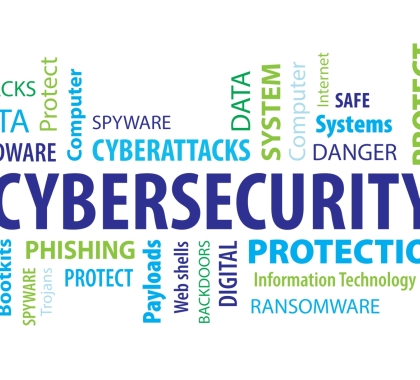By David Russell, CGCIO
Director of Digital Solutions Group
NMPP Energy
Rural communities, despite being isolated from major urban centers, are not immune to the dangers of cyberattacks. In fact, rural communities have been trending to be at greater risk due to their lack of access to resources and technology that can help protect them from cyber threats. There is a crucial need for cybersecurity in rural communities as there are potential risks and consequences of not implementing adequate security measures.
Risks to Rural Communities
For the past three years rural communities have become a higher risk for cyberattacks due to their lack of access to newer technology and resources. The fact is that many rural areas do not have the same level of technology infrastructure as most urban areas. Additionally, rural communities may not have the same level of access to cybersecurity professionals and resources as urban cities, making it more difficult to detect and respond to cyberthreats.
One of the major risks to rural communities is the potential for a data breach. Rural communities tend to not have the same level of security measures in place as their urban counterparts, making it easier for cybercriminals to access sensitive information. Some of the reasons for these disparities are lack of funding and expertise in the rural community making it difficult to hire for the skills needed or to even find a partner to work with. The sensitive data at risk could include personal information such as Social Security numbers, financial information, and medical records. A data breach could have serious consequences for both individuals and the community as a whole.
Another risk to rural communities is the potential for a cyberattack on critical infrastructure. Many rural communities rely on critical infrastructure such as water and electrical systems, which are controlled by computer systems. A cyberattack on these systems could have dire consequences for the electric grid and the community resulting in potential loss of access to essential services. Over the past three years there has been a significant increase in threats, both cyber and physical, that we at NMPP Energy have been seeing and monitoring through various reporting agencies, including the Federal Bureau of Investigation and the Electricity Information Sharing and Analysis Center (E-ISAC).
Implementing Cybersecurity Measures
To address the risks to rural communities, it is important to implement cybersecurity measures. This can include educating residents and employees on how to protect themselves from cyber threats, such as using strong passwords and being cautious about sharing personal information online. Additionally, it is important to implement security measures to protect critical infrastructure, such as regular software updates and implementing firewalls to block unauthorized access.
It is equally important to work with cybersecurity professionals and experts to develop a comprehensive cybersecurity plan for the community. This can include regular security assessments, incident response plans, and drills to help prepare for and respond to cyberthreats.
Conclusion
Rural communities are not immune to the dangers of cyberattacks, and in fact may be at an even greater risk due to their lack of access to technology and resources. It is important for rural communities to implement cybersecurity measures to protect against data breaches and attacks on critical infrastructure. This includes educating employees and residents on how to protect themselves, implementing security measures to protect critical infrastructure, and working with cybersecurity professionals to develop a comprehensive cybersecurity plan for the community. Here at NMPP Energy we are happy to help answer questions and provide guidance to assist you in improving your cybersecurity maturity.

